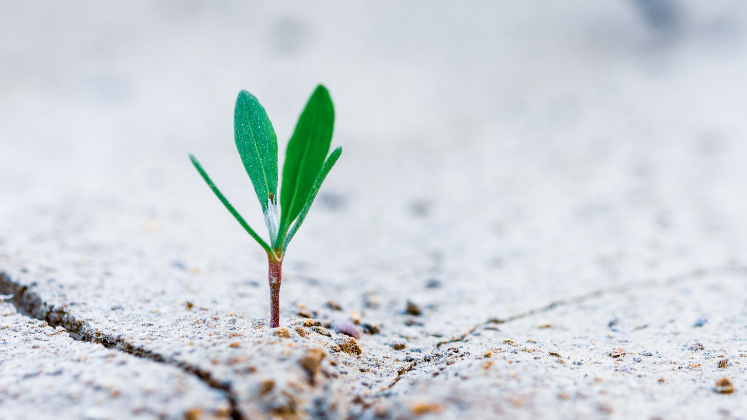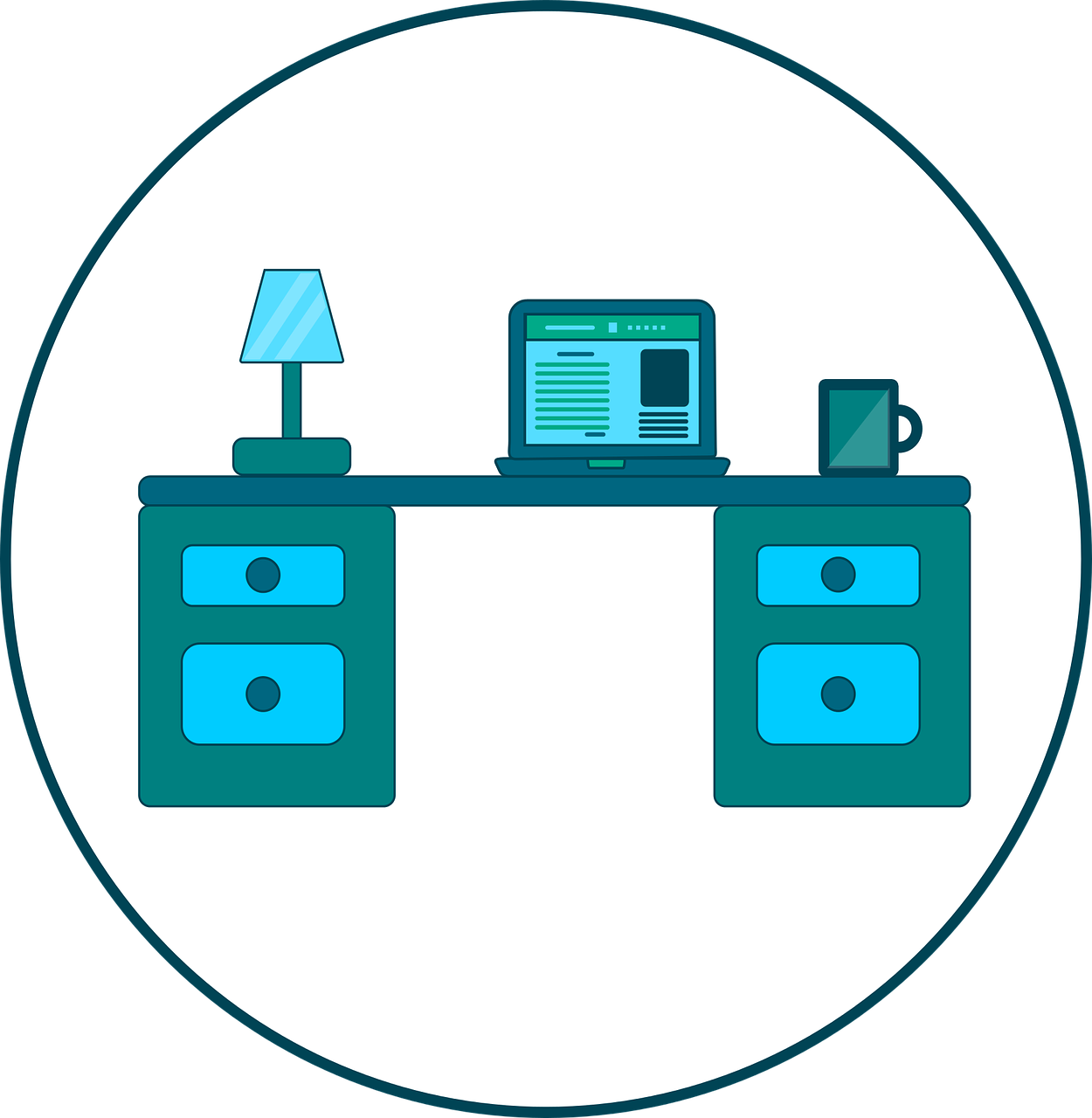Lockdown has presented researchers across the world with a mix of opportunities- in the form of time and new forms of connection as well as challenges: working from home, the disruption to business as usual and health and economic concerns. In this post, we hear from four researchers in Nigeria on how they creatively responded to the changing conditions and how they navigated problems including misinformation, too much time and data charges arising from the online pivot.
Oluwadamilare Akingbade is a Researcher at the Institute of Nursing Nigeria. Here he reflects on running a virtual conference for nurses during lockdown.
I woke up on the fateful morning of 24th March, 2020 with a thought to engage nursing students in Nigeria for a week, building their competencies in research, as they were home due to the lockdown.
After much deliberation with my team members at the Institute of Nursing Research (INR), Nigeria, we agreed to give it a trial.
Within two weeks, we finalised the programme details and publicity began. The theme agreed on was ‘Building the Competencies of the 21st Century Nurse in Research and Scholarly Activities’. We had 14 speakers from five countries for the week-long virtual event, which was held via Zoom and WhatsApp platforms. The seven-day conference lasted from Sunday 10th May to Saturday, 16th May, 2020.
The conference was not without challenges such as an unstable internet connection among others. However, these were surmounted and the conference allowed 278 participants from five countries to ‘travel’ and learn from the comfort of our rooms amid the COVID-19 lockdown. The conference has succeeded in birthing many scholarly endeavours. Both for individuals- I resumed my PhD program some weeks back at The Nethersole School of Nursing, Chinese University of Hong Kong. One of the participants sent this message to the organisers some weeks back. “After the conference, I made up my mind that my undergraduate research will not waste on the shelf. I collaborated with my lecturers and the paper has been published”. Another had this to say: “I was inspired to sharpen my data analysis skills after the conference. I joined the research team of my lecturer and I analysed the data in one of the researches. Our paper has been accepted for publication in an international journal”. Lastly, the conference has birthed the launching of journal clubs in Nigerian Nursing citadels of learning. We are glad we were able to build research competencies amid the COVID-19 lockdown.
Adaora C. Obuezie is a Librarian, an Educator and a PhD student of Library and Information Science. Here she reflects on tackling fake news and misinformation.
In the present Coronavirus pandemic, a lot of fears and uncertainties have been generated over time. One may not be 100% accurate but we need to tread with caution, share with care and be sceptical in our mode of information dissemination. We need to be careful with the way we handle information especially in the time of crisis as misinformation can kill, dehumanise and tarnish reputations.
caution, share with care and be sceptical in our mode of information dissemination. We need to be careful with the way we handle information especially in the time of crisis as misinformation can kill, dehumanise and tarnish reputations.
During the time of Ebola outbreak in Nigeria, avoidable deaths as a result of misinformation were recorded. False news of salt water being a preventive measure and possible cure for Ebola saturated social media and took many people to early graves. It was a very sad development.
In my training as a librarian, information is evaluated before dissemination, taking into consideration the C. R. A. A. P method which stands for Currency, Reliability, Authority, Accuracy and Purpose. When a post is shared through any medium, it is important to find the original document. Turning to the research means you can be educated without relying on others’ summary. The date of such publications is also important as people tend to match old pictures or news with present events just to create panic or make money. Analyse the headlines to get the purpose of the post. Be sure it wasn’t merely to elicit a reaction or make a juicy headline. The reliability of every story line matters. We should always look at fact checkers. Vet the data we are about to share and, when in doubt of its accuracy, pause to research first. Try to share posts from recognised authorities.
Let’s only share information from a verified or a verifiable source. Disseminate facts and not fables. Maintain great integrity of crosschecking stories before you share and shun false hood because fake news is shared by humans.
We have many misleading headlines, confusing newspaper captions, fabricated news and so many other misinformation sources to watch out for. Our mode of information handling should always stand out to guide the populace in making an informed decision. We should inform and not misinform.
Ngozi Perpetua Osuchukwu is a Lecturer in the Department of Library and Information Science at Nnamdi Azikiwe University, Awka, Anambra, State, Nigeria. Here she reflects on changes to the way communities share information.
There was real panic and fear as ‘lockdow n’ became a new terminology being lived out, even in the communities. Guidelines for prevention of COVID-19 mounted, media became awash with jingles, graphics and infographics. But what happened to our communities and their livelihoods?
n’ became a new terminology being lived out, even in the communities. Guidelines for prevention of COVID-19 mounted, media became awash with jingles, graphics and infographics. But what happened to our communities and their livelihoods?
We watched as dwellers deserted their farm lands.
We watched as people kept away from their stands in the market places.
We watched as markets closed.
We watched as the little money at hand for food fizzled out and purses became empty.
We watched as hunger became another variable that erupted from the lockdown.
We watched as farm crops spoilt, wares expired, or became rotten and damaged because of the lockdown.
We watched as able-bodied men and women went hungry with children looking on askance.
Most livelihoods in the communities we work in are physically based: farming, petty trading, artisans and members of the civil service. These are simple people doing their normal business at their own pace pre COVID-19 but now, they have been dealt heavy blows.
I went from community information and engagement to awareness of preventive measures on COVID-19 in Anambra State, Nigeria in collaboration with non-governmental organizations (NGOs).
It dawned on us that community development and engagement should be re-designed.
We found out that many dwellers have smart phones. So we felt that facilitating ICT and digital skills in creating awareness of their crops, prices and contacts for supply and packaging will add value to their lives. We also proposed negotiating announcements in the local area on who has something to sell and where to pick it up as one of the good practices of post COVID-19 on livelihoods. Our communities need these updates.
The harsh realities and experiences of COVID-19 on communities and livelihoods have indicated that humanity must adjust, if it is going to sustain its economic activities. There is now a correlation between livelihood and global events. How we share information is crucial.
Josephine Omose Ofeimun is a pharmacy lecturer and researcher. Here she reflects on remote engagement and support for students.
With the declaration of the COVID-19 pandemic and a nationwide lockdown announced, there was a need to adjust p lans and schedules. The first few weeks were spent writing up some research work that had been carried out earlier for publication. I soon discovered that there was still much time left in my hands. I had already factored in family times and getting supplies for the family. I did some online searches and found some bodies that were conducting webinars and online programmes relevant to my area of research and personal development goals. I registered for these, even though I know it was going to cost me in terms of data charges. But I was determined to do something worthwhile with the time available to me.
lans and schedules. The first few weeks were spent writing up some research work that had been carried out earlier for publication. I soon discovered that there was still much time left in my hands. I had already factored in family times and getting supplies for the family. I did some online searches and found some bodies that were conducting webinars and online programmes relevant to my area of research and personal development goals. I registered for these, even though I know it was going to cost me in terms of data charges. But I was determined to do something worthwhile with the time available to me.
Along the line, I started a chat group on WhatsApp with some of my students whose major complaint was that they were bored and tired of staying at home doing nothing. I introduced the idea and they were quick to buy into it. In fact, many of them have invited their friends to join the group. We started out as 53 members in the group but now there are 134.
We have created a platform where we have online discussions and share inspiring stories on issues from how they survived in “Pharmacy School” to depression, to the issue of rape earlier and how best to avoid being a victim, following the gang-rape and murder of a female student of the University of Benin during this lockdown period.
I try to be as open as possible and non-judgemental so they can feel safe and free to talk and share.
We did a writing challenge where we challenged ourselves to research on time management and submit write ups on the topic based on their understanding. Writers were rewarded with 1.5-5 Gig of data as an incentive. We have in the past few weeks also included a session on building our vocabulary by adding 10 not so common words (Wabi-Sabi, Musings, Shenanigans, Parody, Gaslighting, Phoney, Traction, Flustered, Ace, Lampoon). They are to find the meaning of each word and try to make at least five sentences with each looking at different context.
These activities have kept me very busy beyond what I bargain for, but I am not complaining as I see myself covering a gap and reaching out a hand beyond the pandemic to positively engage these students.
I miss my work in the lab. I also miss being in class with my students and having face time with them. With the reported number of the coronavirus infections in the country see-sawing up and down daily, one can only pray and hope for an end to the lockdown soonest. Even so, one thing is definite, and that is this new normal is going to be with us for quite some time.
Versions of these stories originally appeared on the AuthorAID blog from INASP
Image by cromaconceptovisual from Pixabay








These are very innovative ways for turning lemon into lemonade. Congrats to all these young and vibrant researchers.
As a Chemistry professional and researcher from Kenya, l have learnt from you. Keep moving on
This is really a trying period all over the globe. The facts and figures of COVID-19 experiences in Nigeria are still overwhelming, especially where the rural communities’ dwellers are. Searching deeper will open up more stories of hardship and knowledge management approaches. I am really appreciative of these selective stories for little insights.